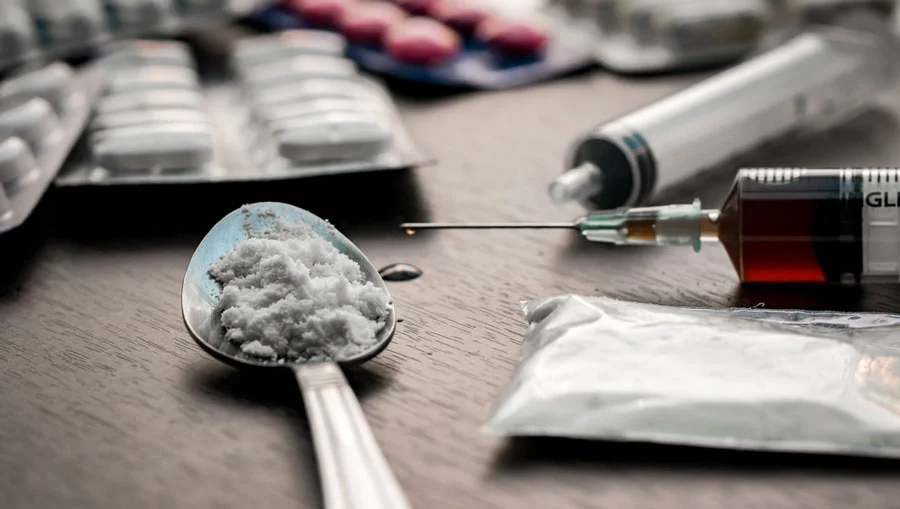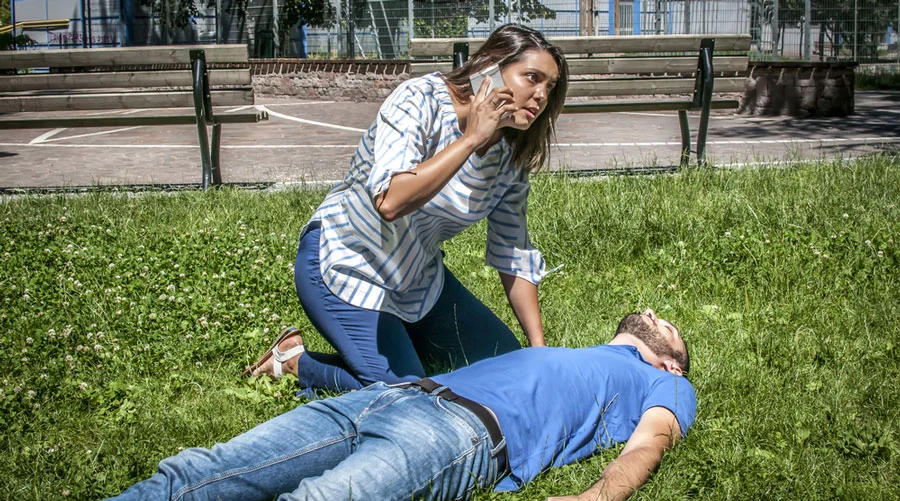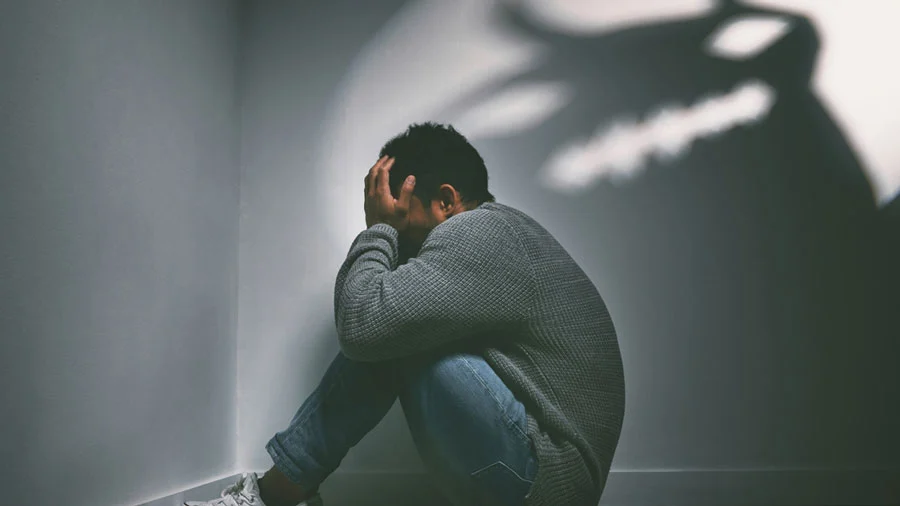Knowing the Signs of Opiate Intoxication and Getting a Loved One Help
Are you looking for the signs someone is on heroin? Is a loved one behaving differently?
Learning the most common signs and symptoms so that you can help is a wise decision. Heroin is a highly addictive substance, and chronic, untreated heroin abuse is potentially life-threatening. While your loved one may not appreciate your concerns now, rest assured – you are doing the right thing.
Education is the way to unlock change and healing. At Ingrained Recovery, our team can help you understand heroin better.
Keep reading to learn why opioid and heroin abuse is so widespread, especially in young adults, along with the risk factors and behavioral symptoms. Remember that you can reach out to our caring team at any time for additional support and effective detox and inpatient treatment support!
Get Effective Heroin Detox at Ingrained
Find Help At Ingrained Recovery
The 7 Most Common Symptoms and Signs of Heroin Abuse
Let’s get started with what you came here to find out: the symptoms of heroin addiction.
Without any delay, here are the most common symptoms, signs, and telltale indicators of heroin addiction:
- Behavioral symptoms: You may witness sudden personality changes or secretive behaviors. You may also see them become less engaged in activities they enjoy. They may also exhibit paranoia, social withdrawal, or have mood swings.
- Neglecting responsibilities: These can include parenting, work, or school obligations. The effects of heroin addiction are so powerful that they no longer care about anything but ingesting heroin.
- Physical symptoms of heroin abuse: Constricted pupils/eyes; warm, flushing skin; slowed breathing; heavy limbs; red injection sites on his or her body.
- The presence of drug paraphernalia: You may see signs of heroin, including injection drug kits, needles, syringes, burnt spoons, or aluminum foil lying around their personal spaces.
- Scabs, abscesses, or scars: These come from picking at the skin. They might wear long sleeves in warm weather to hide these marks.
- Developing infectious diseases: Shared needles mean an increased risk of illnesses. The problem is so severe that the Centers for Disease Control and Prevention now advocates for community-based Syringe Services Programs (SSPs).
- Financial or legal problems: You may note that they start to sell their prized possessions or steal money to support their heroin addiction.
If your loved one has these symptoms of heroin abuse, remember that heroin addiction is an illness. Be non-judgmental and compassionate, even if they lash out at you for expressing your concern.
Now let’s look further at substance abuse, heroin, and how the brain and body of your loved one can become dependent on this powerful narcotic.
Understanding Opiate Addiction and Knowing the Signs Someone Is on Heroin

Have you ever wondered why you hear about so many heroin users today? The effects of heroin abuse are everywhere in society. The truth is that heroin is widely available and easier to obtain than prescription drugs like opioids for those who want this escape.
Further, the highly addictive nature of heroin leads heroin users to become physically dependent quickly.
Heroin comes from the opium poppy plant. The National Institute on Drug Abuse (NIDA) explains that heroin is similar to other opioid drugs. Opioids are effective for pain relief because the drug binds and crosses the protective blood-brain barrier, where the heroin interacts with opioid receptors in the brain.
Why Does Heroin Abuse Happen?
Once that happens, they block pain signals in the central nervous system. However, a central nervous system depressant wears off in a few hours.
Thus, the relief also reinforces the need to take more to feel the same effects, leading to abusing heroin and cycles of using and dependence simply to fight off the symptoms of withdrawal.
3 Causes and Risk Factors for Heroin Addiction
Some people have higher risk factors for heroin abuse. Understanding the following causes and risk factors for substance abuse can help you support your loved one as you seek help:
1) A Personal or Family History of Substance Abuse
Someone with a first-degree relative who has an addictive disorder is far likelier to have issues with substance abuse, including heroin addiction. Genetics and environmental factors within families can lead to addictive behaviors.
Similarly, if someone has struggled with dependence on alcohol or other drugs in the past, it can make them that much more vulnerable to heroin.
2) Co-occurring Disorders and Self-Medication
Many people have co-occurring disorders or a second diagnosis in addition to heroin use. They seek temporary relief from the pain that heroin gives them. A mental illness personal history predisposes many people to abuse substances. Over time, that leads to an extremely dangerous situation, as both the mental illness and the substance use spiral out of control.
Here are some of the most frequent mental illnesses that co-occur with heroin addiction:
- Depression
- Panic disorder
- Anxiety disorder
- Post-traumatic stress syndrome
- Personality or mood disorders
Each mental illness can be managed with an evidence-based approach to medication management and mental health counseling.
3) Personality Traits That Lead to Addiction to Heroin or Other Substances
Certain personality traits mean that some people enjoy taking risks, including drug use. They may see drug abuse as a new, exciting experience. They may also develop uncontrollable drug-seeking behaviors as the opioid use disorder progresses.
Be aware of warning signs such as the presence of paraphernalia, the smell of smoked fentanyl or heroin, isolated behaviors, and inexplicable, frequent bouts of sickness due to withdrawal.
Keeping an Eye Out for Heroin Withdrawal Symptoms Too

Why would we review withdrawal symptoms for opiates?
Simply put, if a loved one is using heroin, they are likely to experience withdrawals when their supply runs low, which can be a very obvious indicator all on its own.
Additionally, when it comes to opiate and opioid use disorders, withdrawal symptoms can be both severe and dangerous. The danger lies in the fact that the brain and body have been “rewired” to rely on heroin use to function.
Heroin acts on the brain stem, which controls important functions like the heartbeat and breathing. Then, the sudden absence creates stress on the brain’s neurotransmitter systems. The unpleasant withdrawal symptoms are the result.
Here are the heroin withdrawal symptoms to watch someone may experience when ending heroin use:
Early Opiate Withdrawal Symptoms: 6-12 hours after the last dose
- Anxiety
- Agitation
- Muscle aches
- Increased tearing
- Insomnia
- Runny nose
- Sweating
- Yawning
Get Support to Overcome Heroin Withdrawal
Find Help At Ingrained Recovery
Peak Heroin Withdrawal Symptoms: 1-3 days after the last dose
- Severe muscle and bone pain
- Abdominal cramping
- Diarrhea
- Nausea and vomiting
- Rapid heartbeat
- High blood pressure
- Dilated pupils
- Goosebumps (cold flashes)
Late Symptoms and Post Acute Withdrawal: 3 days to several months

- Fatigue
- Depression
- Intense cravings for heroin
- General discomfort and unease
Heroin withdrawal requires medical supervision to ensure safety. In a professional setting, the professionals will consider a wide range of factors, such as family history, addiction personal history, and co-occurring disorders.
The team can dispense prescription medications to help the person have a relatively comfortable withdrawal. Our clinical team is also well-versed in treating the clinical depression and anhedonia that can occur when heroin users detox and begin getting clean.
How to Watch Out for Heroin Overdose and Take Action
The following symptoms can help you determine if your loved one has overdosed on heroin:
- Respiratory depression, slow or shallow breathing or no breath at all
- Severe drowsiness or unconsciousness
- Blue or purple lips or fingernails
- Pinpoint pupils that don’t respond to light
- Weak or low pulse
- Low blood pressure
- Making choking or gargling noises
- Cold, pale skin
- Nausea or vomiting
A heroin overdose can be fatal if you do not seek immediate medical help. Keep reading – the next section can help you save a life.
What to Do if You See the Heroin Overdose Effects

Heroin overdose deaths are on the rise due to the frequent addition of fentanyl to much of the illicit drug supply, particularly in terms of heroin. If you suspect your loved one has an emergency, seek immediate medical attention. Here are the steps for handling the situation:
- Call 911: Explain to the operator that you need help with a suspected overdose.
- Give Narcan: This treatment is an opioid antagonist that can usually offset the overdose effects. Narcan (naloxone) is now available over the counter and should be in your home, period, if you suggest opiate or opioid use is occurring.
- Check for breathing: Shout for the person to try for a response. If you don’t get a response, check their breathing. Start rescue breathing, one breath every five seconds.
- Check the pulse: If the person doesn’t have a pulse, start chest compressions, alternating with rescue breaths. Continue until they start to breathe or first responders arrive on the scene.
- Recovery position: If your loved one is breathing but not conscious, put them on their side with their head tilted back. This position can stop them from choking on vomit.
- Inform first responders: When help arrives, provide accurate information and tell them any first aid you’ve given.
Making quick decisions and responding quickly can save a person’s life during a heroin overdose.
Get Proven Treatment Programs at Ingrained
Find Help At Ingrained Recovery
Contact Ingrained Today to Get Effective Help for Heroin Abuse
If your loved one shows the signs and symptoms of heroin abuse and/or withdrawal, especially combined with any of the elevated risk factors for heroin addiction, it’s time to seek help. Addiction is known as a relapsing disease and requires professional intervention and evidence-based treatments to ensure long-term recovery.
If you want to free your loved one from the effects of heroin abuse, Ingrained Recovery is here to help. Our compassionate, well-qualified staff know how to treat these signs and symptoms of drug use effectively. Our goal is long-term sobriety. Reach out today, we are here to help.

